What the ‘F’ is a Finney?
And why do we care?
When I was nine, my Dad took me to a Phillies baseball game for my birthday. I don’t remember the game, but I do remember that he yelled at me for not being careful with my money.
We were in the hot-dog line, and he asked me if I still had the money he gave me earlier, so I pulled four crumpled one-dollar bills out of my pocket. Two of the bills fell to the ground. Someone walking past accidentally kicked them, and I had to scramble to get them back.
“You don’t know how to take care of money,” he yelled. It was an overreaction — I agree. It’s the only thing I remember from that day.
To make a blatant understatement — money is important.
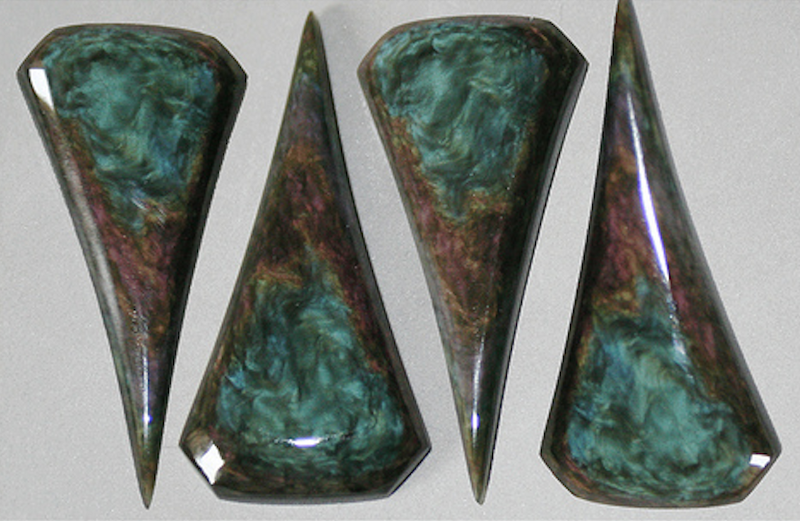
As early as 15,000 years ago, people used Anatolian obsidian as money. Since then, people have used copper, silver, gold, grains of wheat, and even sheep and cattle as money. Early laws such as The Code of Hammurabi laid down rules for money such as the amount of interest one might charge, fines for wrongdoing, and even levels of compensation for various jobs. One culture even tried to use cow manure as money.
“Hey brother, can you spare some money?”
“Sure. Here you go. Have a turd.”
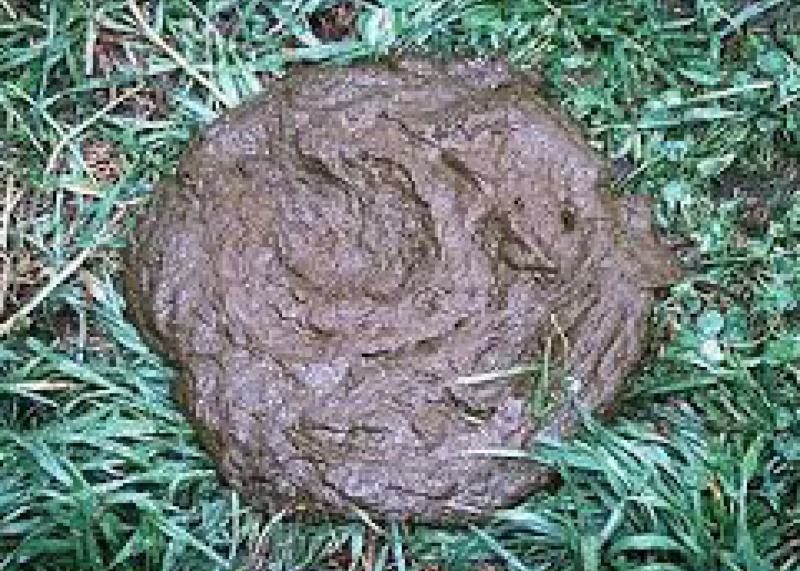
Certain materials obviously serve better as currency than others.
One important attribute of ancient currencies was scarcity. Anatolian obsidian is harder to get your hands on than grains of wheat. Yes, you can pick them both up off of the ground (Dad!), but to get Anatolioan obsidian, you have to go to Anatolia.
So What the ‘F’ is a Finney?
A finney is a turd to ether’s cow shit.
In other words, it’s an indistinguishably valuable division of an ether. A finney is one one-thousandths of an ether.
There are four formal names for the sub-divisions of ether: the wei, the szabo, the finney, and, of course, the ether.
A wei is the most basic unit in the ethereum world. It is worth 10^-18 of an ether. That’s about one god-gillionth of an ether.
I know this is a little strange, but I actually looked this up — if a wei was a single grain of wheat, and a million grains of wheat make up a bushel, there would be one billion bushels of wei in a finney.
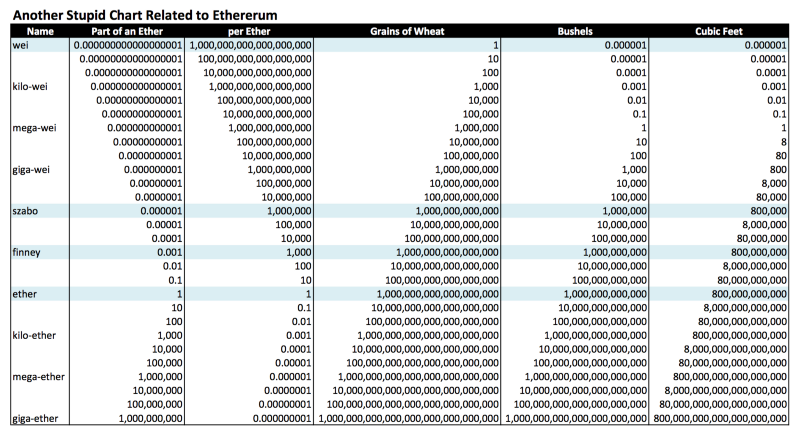
A szabo is a trillion times larger than a wei, or about a million bushels of wheat. According to the National Association of Wheat Growers (which has a surprisingly informative website), “[a] bushel of wheat yields 42…loaves of white bread or about 90…loaves of whole wheat.” (Who knew?)
Averaging these numbers (in other words, half your sandwiches are wheat and the other half are white), a szabo would yield about 61,000,000 loaves of bread. At twenty-two slices per loaf and two slices of bread per sandwich, it would cost only ten _szabo_s to make a peanut butter and jelly sandwich for every person living on the earth today (~five billion).
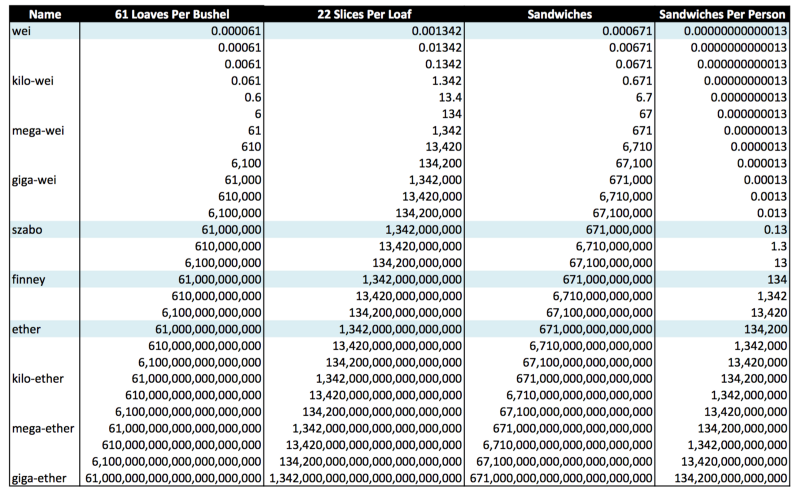
A finney is a thousand times larger than a szabo and a thousand times smaller than an ether. Or about one hundred and thirty four peanut butter and jelly sandwiches for every person on earth.
If wei was a grain of wheat, then an ether would be 134,200 peanut butter and jelly sandwiches for every person on earth.
Or, to put it one final way, if wei was a grain of wheat, an ether would be a single peanut butter and jelly sandwich the size of a kitchen for every person on earth.
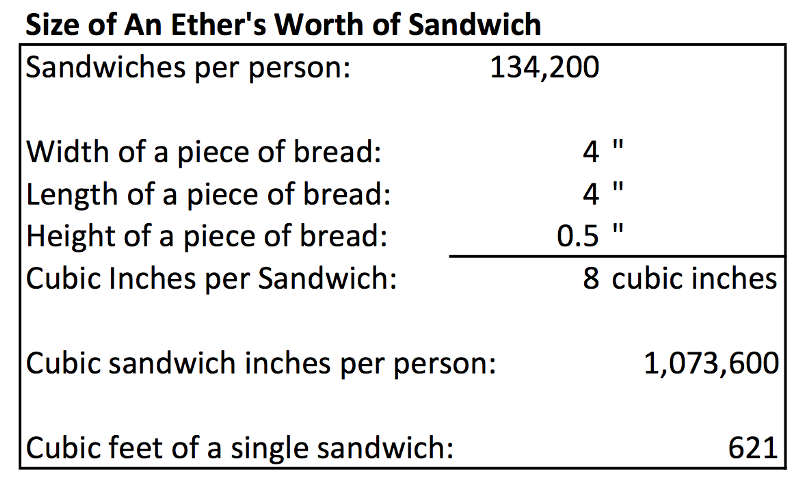
But Where Did the Name Finney Come From?
Suffice to say that you can find Mr. Finney’s academic paper on the Internet, Mr. Szabo’s many academic papers are available on his website, and Mr. Wei’s academic output is available as well. The names are in homage to a few of the original thinkers in the crypto-currency space. I would discuss the in-depth mathematical material in those papers, if I wanted to, but I would much rather focus on silly things like giant peanut butter and jelly sandwiches.
Conclusion
Just to bring this post to its absurdly logical conclusion. Think about what happens to bread after it’s been eaten? (See the discussion above about early forms of money.) I hope that’s not what’s going to happen to my finneys. I have some concern that it might.
See Dad. I do care about money!